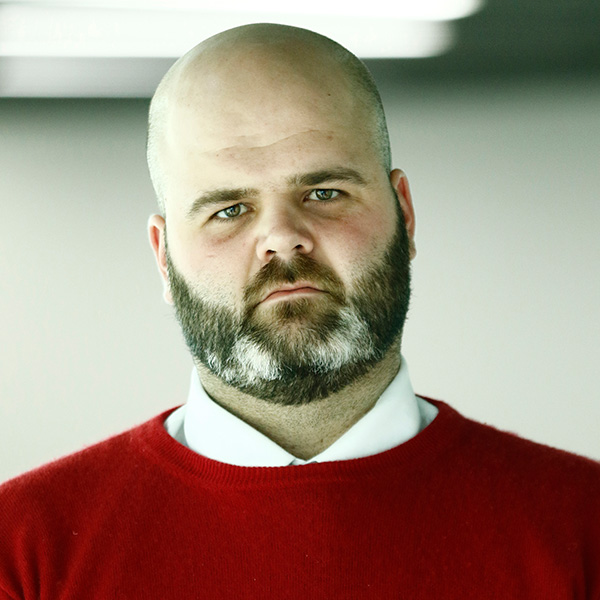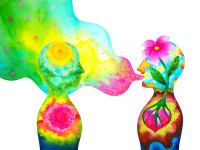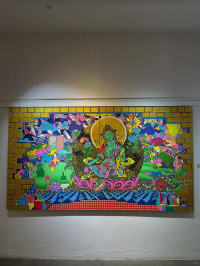Culture & Lifestyle
Rallying for cancer awareness
At the finish line of The Amazing Motor Rally, the Kaski branch of the Nepal Cancer Relief Society awaits the arrival of the rest of the fleet As the cars reach their final stop in Pokhara one-by-one, each team is welcomed and their times taken
Thomas Heaton
At the finish line of The Amazing Motor Rally, the Kaski branch of the Nepal Cancer Relief Society awaits the arrival of the rest of the fleet. As the cars reach their final stop in Pokhara one-by-one, each team is welcomed and their times taken. Waiting with a big smile is Saru Adhikari, one of the cancer society’s volunteers.
On Friday, February 2, the rally arrived in Pokhara from Kathmandu, after undergoing a number of pitstop challenges along the way. The annual event, organised by KGH Hotels, is aimed at raising cancer awareness, a goal that Adhikari herself identifies with.
Adhikari’s relationship with cancer is very personal, as she once suffered from cervical cancer herself. She went through radiotherapy and surgery, and is now eight years cancer-free.
The rally’s motto is “Cancer is curable if treated early”, apt given that Adhikari managed exactly that, and is held ahead of World Cancer Day on Monday.
“When I found out, I was really upset. When I went to hospital to get treatment, I saw so many other women, and I realised I’m not the only one. Other people are suffering too,” she says.
Since beating her illness, Adhikari has volunteered with the cancer relief society every year, raising awareness and setting up health camps around Nepal to make sure others too beat the disease like she did.
“Because I had cervical cancer, I want to help others suffering from the same thing. Many women have cervical or breast cancer, as well as cancer of the uterus,” she says.
The rally, currently in its sixth iteration, takes the 200 kilometre trip from Kathmandu to Pokhara every year, just ahead of World Cancer Day, on February 4. This year, 130 people in 35 cars competed for various prizes from the event’s sponsors. Accruing points in various challenges, ranging from dizzy ‘drunken’ football, or beer pong, to solving riddles and maintaining certain speeds, the rally was not really a race. All vehicles were fitted with GPS and drivers had to stay well below the speed limit, with points being awarded for performance in the challenges. One of the many prizes available to competitors was for best decoration—and plenty were decorated with anti-cancer slogans and Nepali livery.
People queue up to receive free cancer screening at a medical camp in Pokhara. Post Photo: Thomas Heaton
Dr Purnima Rajkarnikar Sthapit, president of the cancer society’s central committee, says it’s unlikely anyone in the rally has not been affected by cancer, directly or indirectly. Some are doctors, others have lost family members, and others—like Sthapit—are survivors. Diagnosed with thyroid cancer about five years ago, Dr Sthapit found it early and was cured—another case for catching the problem early.
Dr Sthapit says she has seen increased cancer awareness in Nepal —almost all cancer services are provided in country—but people need to get themselves checked more.
“People are quite aware that smoking, at least, causes cancer. But they aren’t aware that they have to go to the hospital to get screened,” she says.
In addition to the rally, a health camp is also conducted, where people can come for free dental and eye check-ups along with women’s cancer screening. The health camp was held the Saturday following the rally, on February 3 .
Taking health facilities to the people often works the best, given that many in Nepal face geographical barriers when it comes to accessing health services. Held west of Pokhara, in Bhakunde, at least 400 locals received free dental and eye check-ups, as well as women’s cancer screening. Some 250 bags were also donated to students from the school where the camp was held. The camp was equipped to screen up to 400 women for cervical cancer; however, the turn-out was lower than expected. Just 95 women were checked, out of whom nine tested positive and were referred for treatment.
Rally chairman Diwakar Rajkarnikar says because of the low numbers, the health camp would be just the first of many this year. Many are afraid of the test results, or they tests themselves, so awareness and setting up similar camps is still necessary. He hopes to have screened 3,500 women between the ages of 30 and 60 by the end of the year.
“More awareness is needed, so this is just the beginning,” says Rajkarnikar.
Dr Sthapit, an ocular oncologist and oculoplastic surgeon, was specifically screening for eye cancers while others provided eye tests and free glasses. Those suffering from cataracts were referred to the Himalaya Eye Hospital for surgery at discounted rates. Following the camp, a talk was also held to share the ways in which people might be able to raise awareness. Speakers also shared their own personal encounters with cancer.
Karna Shakya, KGH founding chairman, was also president of the Nepal Cancer Relief Society once. Shakya has been fighting for cancer awareness for 30 years, after his first run-in with the disease in 1987. He lost both his wife and daughter to cancer within three months. “Back then there was nothing. No treatment, nothing,” he says.
Devastated by the death of his daughter and wife, Shakya, an influential hotelier, decided to push the government to do something about cancer in Nepal. Though it was difficult, his lobbying eventually led to a one paisa tax being added to each cigarette sold—which raised enough for the building of the Bhaktapur Cancer Hospital.
Ten years ago, Shakya himself was diagnosed with, and survived, prostate cancer.
“I asked, ‘of everyone, why me?’ I was scared and fought with god. But that’s not me,” says Shakya.“I remember when my son found out. I can still see those fat teardrops in his eyes. I asked how I could make myself strong, then said ‘I’m going to fight this’.”
The death of his daughter and wife led him to raise funds for a hospital, but his own cancer sparked the realisation that there is a separate need that few were looking into—counselling services for those affected.
Despite how much cancer has taken from him, Shakya is content with his work. He continues to raise awareness, from village to village, so no one has to pay the price he and his family did.
“It was a very painful part of my life, and because of that pain we have all of this,” Shakya says.“I’m happy I’ve come through. I turned my pain into power.”
The most recent addition to Shakya’s cancer-fighting arsenal is a cancer and smoking cessation hotline, to which much of the proceeds from the rally will go—the Kaski branch of the cancer society also received Rs 50,000. The hotline is not only for information, but counselling too, because “medicine is not enough”, says Shakya. Along the highway from Kathmandu to Pokhara one might be able to find the hotline at regular intervals, thanks to rally participants laying stickers throughout the journey.
Although the fight against cancer is a major driver for the event, it is also being used to promote tourism for Visit Nepal 2020. The organisers specifically want to boost domestic travel so the country is not so reliant on foreign tourism. But health remains at the heart of the rally, and the events surrounding it, with the message of staying up to date and getting checked because “cancer can be cured if treated early”.




 14.24°C Kathmandu
14.24°C Kathmandu




.jpg&w=200&height=120)











